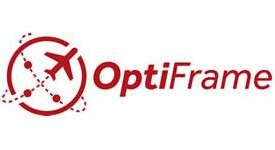An optimization framework for trajectory based operations. OptiFrame is a two-year SESAR 2020 Exploratory Research Project led by Lancaster University in partnership with EUROCONTROL (European Organisation for the Safety of Air Navigation, Belgium), CFR (Consorzio Futuro in Ricerca, Italy) and NLR (Stichting Nationaal Lucht- En Ruimtevaartlaboratorium, The Netherlands). The project started on the 1st March 2016, and will be completed on the 28th February 2018. View our publications.
Objectives
The main objective of the OptiFrame research project is the application of principles of mathematical modelling and optimization to configure and assess the performance of the Trajectory Based Operations (TBO) concept. The focus is on the pre-tactical operations planning phase.
The project aims to verify the viability of the TBO concept, to identify barriers and enablers associated with the concept, to understand whether, under which conditions, and to what extent the objectives of : i) airspace users’ flexibility, and ii) predictability of the ATM system, can be achieved. In particular, OptiFrame seeks to demonstrate that it is possible to assign trajectories to all flights operating in the entire ECAC area, taking into account the preferences of all users (i.e., airlines) and optimizing the overall air traffic system efficiency.
The primary outcome of this research project is a framework that can be used:
- as a “simulator” to address several of the issues and questions arising for the exploitation and deployment of the TBO concept, to fully understand the benefits and limitations of the TBO approach;
- to investigate the optimal balance between different contrasting Key Performance Indicators relevant for the TBO concept;
- as an engine for the preliminary identification, on a daily basis, of promising Air Traffic Management interventions on a continental scale in Europe (ECAC-wide area).


